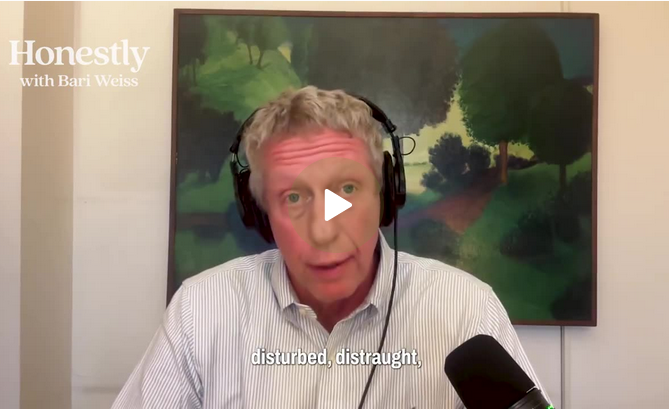National Public Radio (NPR) finds itself in the spotlight after a senior editor broke ranks to expose the network’s government-funded bias and concerted efforts against former President Donald Trump.
Uri Berliner, a seasoned business editor at National Public Radio (NPR), has come forward with allegations that challenge the integrity of the news organization’s coverage during the Trump administration. In a candid conversation with Bari Weiss on her podcast, “The Honestly Pod,” Berliner dug into his observations of NPR’s transformation from a liberal-leaning entity into what he describes as a “knee-jerk,” “activist,” and “scolding” newsroom with a rigidly progressive agenda.
Berliner, who has been with NPR for over two decades and has earned accolades such as a Peabody Award and an Edward R. Murrow Award, spoke of a time when NPR embodied an “open-minded, curious culture,” despite its liberal inclinations. However, he suggested that the election of Donald Trump marked a pivotal shift. “It was Trump’s election… we were trying to damage his presidency, to find anything we could to harm him… what we latched onto was Russia collusion,” Berliner revealed.
This pursuit often leaned heavily on dubious sources and narratives, particularly the completely made-up story of Russian collusion with the Trump campaign—a narrative that captivated many in the media despite being founded on “rumors” and “shoddy documents.” Berliner recalled NPR’s frequent collaboration with Adam Schiff, who appeared on the network numerous times, hinting at evidence of collusion that ultimately never materialized as later confirmed by the Mueller report’s findings.
The senior editor’s critique extended beyond the Russia collusion story to NPR’s overall editorial direction in the Trump era. He pointed to a larger pattern of bias, including the network’s handling of the Hunter Biden laptop story, which was largely ignored based on the rationale that covering it could inadvertently benefit Trump. Furthermore, Berliner blamed the shift in NPR’s workplace culture, where race and identity have taken center stage, overshadowing a once-diverse set of journalistic pursuits.
In the weeks leading up to the 2020 presidential election, NPR faced criticism for its decision not to cover the Hunter Biden laptop story extensively. The outlet stated that it didn’t want to waste listeners’ and readers’ time on stories that were not really stories, and this stance was seen by conservatives as evidence of bias, arguing that NPR was protecting Joe Biden by dismissing potentially damaging information as irrelevant or unverified.
WATCH:
“I think we sort of went to sort of the story kind of disappeared. But to me, that was like a time for like, what went wrong? Why did we miss this? Like, you know, despite our feelings about Trump, this is a story we should have sort of treated differently,” Berliner said, regarding the missed opportunity for introspection and course correction following the Mueller report.
Throughout Trump’s presidency, NPR extensively covered the allegations of collusion between Trump’s campaign and Russia during the 2016 election. The network persisted in highlighting these claims despite the Mueller Report’s conclusion, which found insufficient evidence to support the accusation of collusion.
Trump and his administration at the time periodically suggested cutting federal funding for the Corporation for Public Broadcasting, which supports NPR among other public media outlets. Trump had also been critical of the coverage he has received from NPR, often using his platform to criticize what he viewed as unfair treatment.
Berliner’s candid disclosure not only shadows a crisis of confidence in one of America’s news organizations but also shows the challenges facing an era marked by deep political corruption.

Leave a Reply